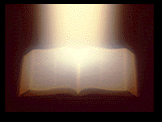Lawyers say if national motto killed, religious freedoms will be lost!
© 2006 WorldNetDaily.com
If an atheist who contends "In God We Trust" violates religious rights under his own "First Amendment Church of True Science" wins in court, the changes in the U.S. could be radical, says a lawyer defending the national motto.
Banning references to God or Christianity in the public sphere would mean, for example, Los Angeles – "The Angels" – would need a new name, according to Kevin Snider, chief counsel of the Pacific Justice Institute.
Sacramento, too, would disappear, because one couldn't have a city called "The Sacraments," he told WND.
The motto would disappear from U.S. coins, where it first appeared in the 1800s, and the precedent would just ripple from there, he said.
"We better take this one seriously," constitutional attorney Herbert W. Titus told D. James Kennedy's Coral Ridge ministry. "Otherwise, we're going to see a very strong erosion of the references to God at the federal level."
The radical elimination of those references already has been under way for some years, as WND reported in a story about the U.S. Supreme Court changing its official description of stone tablets in the artwork within the very chamber where decisions are delivered. As recently as 20 years ago, they were officially the Ten Commandments. Now they are the Ten Amendments.

The lawsuit at issue was brought by Michael Newdow, who earlier challenged the words "under God" in the Pledge of Allegiance. The U.S. Supreme Court rejected his claim in that case, but on a technicality, and Newdow refiled the action.
Newdow then also sued over the national motto, alleging it infringed on his rights, but the claims were turned back at the district court level, where Judge Frank C. Damrell Jr. cited a 36-year-old appellate ruling and concluded the national motto "has nothing whatsoever to do with the establishment of religion."
That previous ruling said the motto's "use is of a patriotic or ceremonial character and bears no true resemblance to a government sponsorship of a religious exercise."
But Newdow appealed the decision to the 9th Circuit, which had granted him a favorable ruling in his earlier complaint over the Pledge of Allegiance. Now briefs have been filed supporting the district judge's conclusion.
The U.S. Justice Department submitted arguments because it was named as defendant in Newdow's lawsuit and subsequent appeal. The Pacific Justice Institute, or PJI also asked to be added to the case on behalf of the defendants and submitted its arguments.
PJI argues the earlier court rulings are worth considering. Just because something is religious does not necessarily mean it violates the Establishment Clause.
"If it has a historical basis, and it's purpose is for ceremony or for solemnizing events," it is allowed, Snider noted.
The U.S. Constitution and other founding documents also reference rights being divinely endowed and contain other acknowledgments of God, "so our position is the government can have a motto that is reflective of that," he said.
Newdow has admitted that such references do not require him to believe in God, but he told WND he still wants to eradicate the historic motto in public places and instead install his own belief system that does not acknowledge God.
He said his goal is to have "the government treat everybody's religious views equally," even though when there are opposite views, such a goal is technically impossible.
Coins cannot, after all, be minted both with the motto and without the motto, a circumstance that might be considered treating belief systems "equally."
Newdow told WND the issue of the motto is an attempt for the government to do "exactly what the Establishment Clause is supposed to prevent."
But Snider said the ripple effect would be massive, should the ultimate decision, which may be made by the U.S. Supreme Court, throw out the motto: Every cross in every national cemetery might have to be removed or changed into some other symbol, the Washington Monument's reference to God could have to go, those Ten Commandment representations inside the U.S. Supreme Court Chamber could have to be removed.
Even the Constitution's own reference that it was done "in convention … in the year of our Lord" 1787, apparently could be considered "unconstitutional" under that reasoning, observers said.
Newdow previously dismissed that reference as a "term of art."
Newdow now will have several weeks to submit his reply to the defendant's briefs before oral arguments are scheduled, and those will be sometime over the next few months, Snider said.
Snider said if the appellate court follows its own record of anti-religious decisions, the case probably will go up to the Supreme Court.
"Our attorneys are committed to work hard as we diligently represent people of faith throughout this country in this very important case," said Brad Dacus, president of Pacific Justice.
Newdow's other arguments are that the motto turns him into a "political outsider," and it forces him to pay taxes for a religious notion.
He cites constitutional provisions, as well as the Religious Freedom Restoration Act, which requires the government to show a compelling interest before it can "substantially burden" religious freedom.
Newdow said the motto "places the government on one side in the quintessential theological debate: Does God exist?"
"That would be news to the First Congress," Kennedy wrote. "The same Congress that in 1789 passed the First Amendment, which Mr. Newdow relies on to eliminate the motto, immediately afterward asked President George Washington to declare a day of public thanksgiving and prayer – to God. The Congress responsible for the First Amendment was itself not neutral on the question of God's existence."
Also filing amicus briefs in the case were several other Christian and civil liberties organizations, including the national public-interest Thomas More Law Center and the American Center for Law and Justice.
"From the beginning, this suit was nothing more than an attempt to alter history by removing a legitimate expression of our religious history," the ACLJ said.
"The Establishment Clause was never intended as a guarantee that a person will not be exposed to religion or religious symbols on public property, and the Supreme Court has rejected previous attempts to eradicate all symbols of this country’s religious heritage from the public’s view," the ACLJ's brief argued. "Although enterprising plaintiffs can find support for just about any proposition in the Court's multifarious Establishment Clause pronouncements, a claim that the national motto violates the First Amendment borders on frivolous."
"If our National Motto can be declared unconstitutional simply because it reflects a basic truth of our religious faith - as Dr. Michael Newdow has charged in court - then any expression of your faith and mine can also be declared illegal. Our foundational freedoms will crumble," the ACLJ said.
Richard Thompson, the Thomas More center's chief counsel, says Newdow's "attempt to eliminate the mere acknowledgement of our religious heritage by our national motto has no basis in constitutional law."
"Even the Supreme Court, in past decisions, has understood there is an unbroken history of official invocations of Divine guidance beginning with our founding fathers and continuing to our present day leaders," Thompson said.





No comments:
Post a Comment